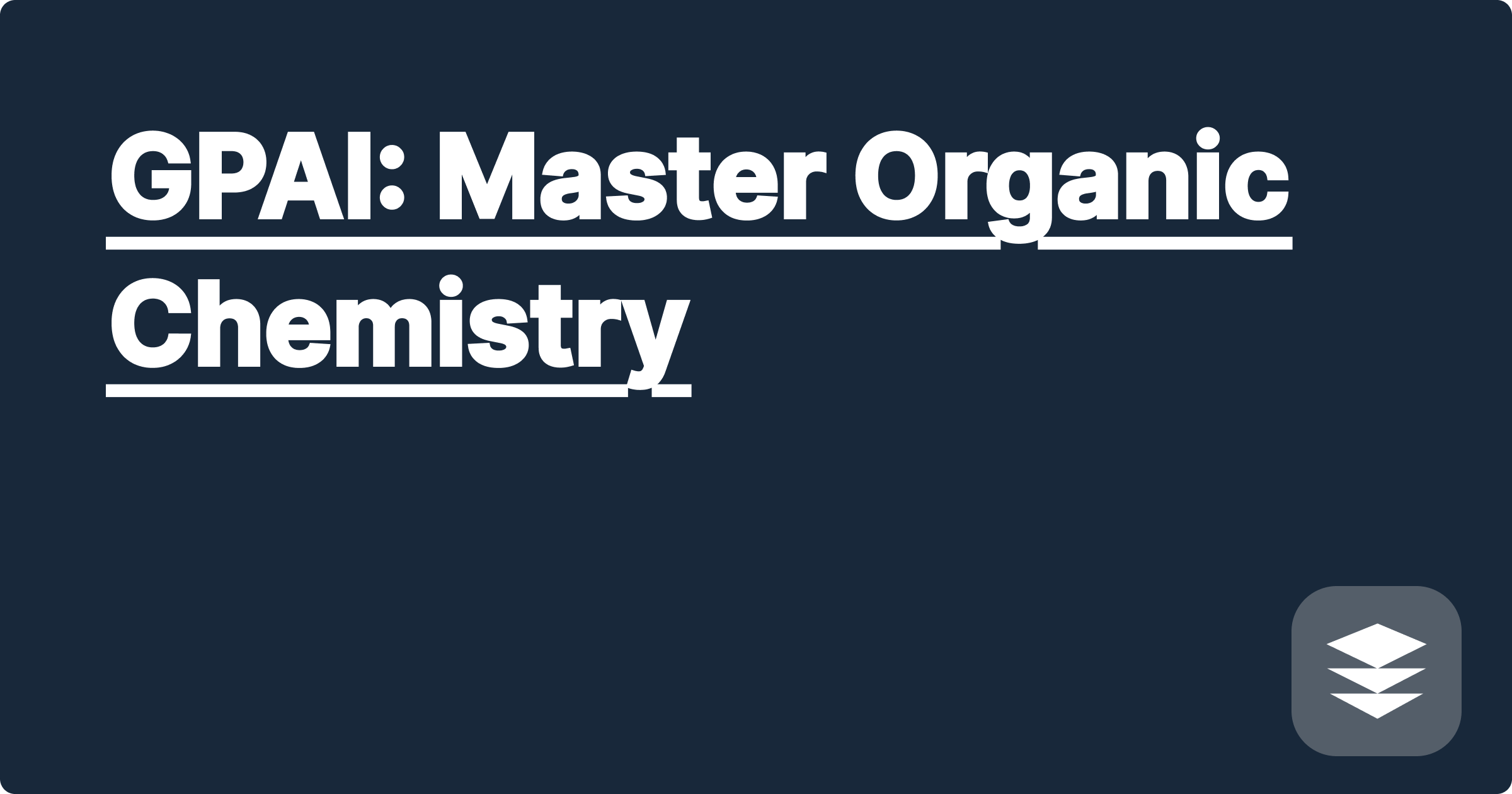
Organic chemistry, often dubbed the “weed-out” course, presents a formidable challenge for many STEM students. Its intricate concepts, complex reactions, and sheer volume of information can be overwhelming. Fortunately, the rise of artificial intelligence offers new avenues for understanding and mastering this challenging subject. AI tools can provide personalized tutoring, step-by-step problem-solving assistance, and even generate practice problems, transforming the way students approach organic chemistry.
This shift in learning paradigms matters significantly for STEM students and researchers. Mastering organic chemistry is crucial for careers in medicine, pharmacy, materials science, and many other fields. AI can level the playing field, providing accessible and personalized learning experiences that cater to diverse learning styles. By leveraging these powerful tools, students can not only improve their academic performance but also develop a deeper understanding of the fundamental principles governing the molecular world. This empowers them to become more effective problem-solvers and innovative thinkers.
Organic chemistry focuses on the structure, properties, composition, reactions, and preparation of carbon-containing compounds. These compounds form the basis of life and play a crucial role in numerous industrial applications. The complexity arises from the vast number of possible organic molecules and the intricate ways they interact. Students often struggle with visualizing three-dimensional molecular structures, predicting reaction mechanisms, and applying abstract concepts to real-world problems. Furthermore, the traditional teaching methods often rely on rote memorization, which can be inefficient and demotivating. The sheer volume of information can feel overwhelming, leading to frustration and a sense of being lost in a sea of reactions and nomenclature.
AI tools like ChatGPT, Claude, and Wolfram Alpha can be invaluable allies in conquering the challenges of organic chemistry. ChatGPT, for example, can act as a personalized tutor, providing explanations of complex concepts, answering specific questions, and even generating practice problems tailored to individual needs. Claude can assist in summarizing research papers, exploring different reaction pathways, and offering alternative explanations for observed phenomena. Wolfram Alpha excels at providing factual information, calculating properties of molecules, and visualizing molecular structures. By combining the strengths of these different AI tools, students can create a powerful learning ecosystem that caters to their specific needs and learning styles.
Let’s consider a scenario where you encounter a challenging reaction mechanism. First, clearly define the reaction you want to understand and input it into ChatGPT. You can ask ChatGPT to explain the mechanism step-by-step, highlighting the role of each reactant and intermediate. Then, you can use Wolfram Alpha to visualize the three-dimensional structures of the molecules involved, gaining a deeper understanding of their spatial arrangements and how they interact. If you are unsure about the underlying principles governing the reaction, you can consult Claude for alternative explanations and explore related concepts. Finally, you can use ChatGPT to generate practice problems similar to the original one, solidifying your understanding and testing your ability to apply the learned concepts.
Suppose you are struggling with the concept of Sn1 and Sn2 reactions. You can ask ChatGPT to explain the difference between these two mechanisms, focusing on the factors that influence their respective rates. ChatGPT might provide examples like the reaction of tert-butyl bromide (favoring Sn1) and methyl bromide (favoring Sn2) with a nucleophile. You can then use Wolfram Alpha to visualize the transition states of these reactions, gaining a deeper understanding of the stereochemistry involved. For example, you can input "Sn1 mechanism tert-butyl bromide" into Wolfram Alpha to visualize the carbocation intermediate. Furthermore, you can use ChatGPT to generate practice problems involving different substrates and nucleophiles, allowing you to test your understanding and identify areas where you need further clarification.
To maximize the benefits of AI in organic chemistry, it's crucial to develop effective strategies for using these tools. Don't rely solely on AI for answers. Instead, use it as a supplement to your textbook and lectures. Actively engage with the material by asking questions, formulating hypotheses, and testing your understanding. Experiment with different AI tools to find the ones that best suit your learning style. Use AI to generate practice problems and test your knowledge regularly. Finally, don't be afraid to seek help from your professors and teaching assistants. AI can be a powerful tool, but it's most effective when used in conjunction with human guidance and support.
To conclude, AI is transforming the landscape of organic chemistry education. By embracing these powerful tools and developing effective learning strategies, students can overcome the challenges of this demanding subject and achieve academic success. Start exploring these AI tools today and discover how they can empower you to become a more confident and competent organic chemist. Explore the possibilities of combining different AI platforms to create a personalized learning experience that caters to your specific needs and learning style. The future of organic chemistry learning is here, and it’s powered by AI.
GPAI: Solve Physics Problems Fast
Ace Chem Exams with GPAI's Cheatsheet
GPAI: Your Calculus Homework Hero
Conquer Finals: GPAI Study Guide
GPAI: Engineering Lab Data Ace
GPAI: Master Organic Chemistry
GPAI: Your Biology Exam Secret